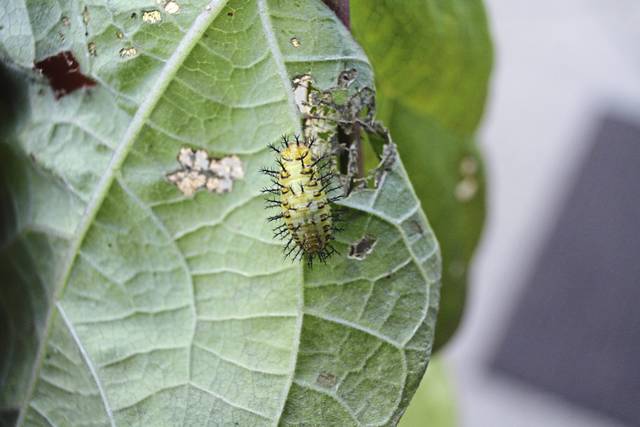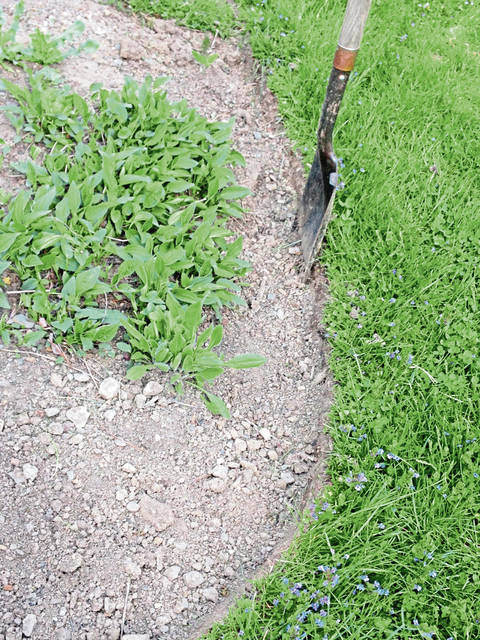For many gardeners, the arrival of summer also means the arrival of insect pests. While most pests don’t cause significant harm to ornamental plants, certain leaf-munching insects can be quite destructive to vegetable gardens.
It’s particularly important to pay attention to the products you use to control pests on food crops since you and your family will be directly consuming that plant when it’s ready for harvest.
Today, I’d like to introduce you to a class of pest control products that can be very helpful to those who experience major pest outbreaks in the veggie patch.
There are many products on the market to help us control garden pests. The group I’d like to focus on today are those that are derived from other living organisms. These types of products are known as bio-pesticides and they’re becoming more common.
Bio-pesticides are effective, safe to use and they don’t bring harm to non-target insects or soil life. There are new products being introduced to the market on a regular basis, but some prove more useful than others.
Here are four bio-pesticides I’ve found to be very useful.
Bacillus thuringiensis (Bt): Bacillus thuringiensis is a naturally occurring bacterium that’s been used by gardeners for many years to control caterpillars of various types. It’s safe for humans and non-target insects, though it will kill all types of caterpillars, so care should be taken to not get Bt-based products on plants hosting butterfly larvae.
There are two primary strains of Bt for use in a garden setting.
1. Bacillus thuringiensis variety kurstaki: Works against all caterpillars including: cabbage worm, tomato hornworm, cutworms, bagworms, tent caterpillars, gypsy moth caterpillars, tobacco budworms and corn ear worms. Works best on young caterpillars, but it’s harmless to non-target creatures and it degrades quickly in sunlight. Brand names include DiPel, Thuricide, Monterey Bt and GardenSafe Bt Caterpillar Killer, to name a few.
2. Bacillus thuringiensis variety israelensis: Works against mosquito, black fly and fungus gnat larvae in wet areas, including marshes, ponds, birdbaths, rain barrels and other standing water. Once ingested, it kills 100% of the larvae of these insects, but will not harm fish, humans, pets or other wildlife. It’s most commonly found as doughnut-shaped mosquito dunks that are dropped into the water.
Spinosad: Spinosad-based products have become a great tool in the arsenal of many gardeners and with good reason. These products (brand names include Captain Jack’s Deadbug Brew, Entrust, and Monterey Garden Insect Spray) are made from a very unique fermented soil-dwelling bacterium called Saccharopolyspora spinosa that was found by a scientist in the Caribbean in the early 1980s. They work most effectively when ingested by the pest, so insects with piercing-sucking mouth parts, like aphids and squash bugs, aren’t very susceptible, but a wide range of leaf-munching insect pests are, including Colorado potato beetles, Japanese beetles, Mexican bean beetles, cabbageworms, budworms, hornworms, flea beetles, sawfly larvae, asparagus beetles, cucumber beetles, various caterpillars, bagworms and many others.
Insects who ingest Spinosad die within a few days of consuming it, and they stop feeding immediately. Spinosad-based products have a low toxicity to beneficial insects. However, Spinosad is known to be toxic to foraging bees, so it’s absolutely essential that you apply the spray when no bees are active; early morning or evening is best. And, it should go without saying, but please follow all label instructions.
Nosema locustae: Products based on this bio-pesticide are made from a protozoan that affects primarily grasshoppers. It’s typically applied to the garden as a bait premixed with wheat bran flakes. Once young grasshoppers ingest these products, they stop feeding and eventually die, and when they do so, the pathogen spreads and infects other hoppers. Brand names include Semaspore and NoLo.
Milky spore: Milky spore disease is caused by a bacterium, Bacillus popilliae and it infects only Japanese beetle larvae. Milky spore is available as a granular or powderized product that’s spread over turf grass that’s infested with Japanese beetle grubs. Over time, the bacteria colonize the soil, providing effective control, though the extent of control is dependent on soil conditions, the number of grubs present and other factors.
One of these four bio-pesticides will be effective against almost any destructive pest you’ll find in your vegetable garden.








